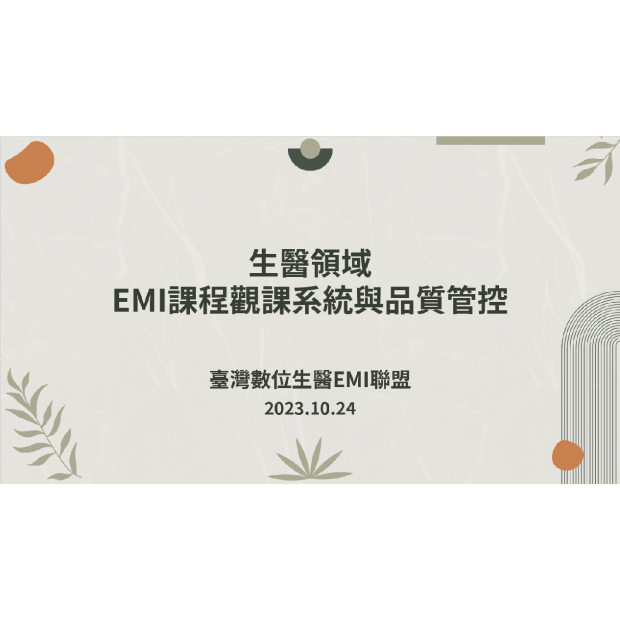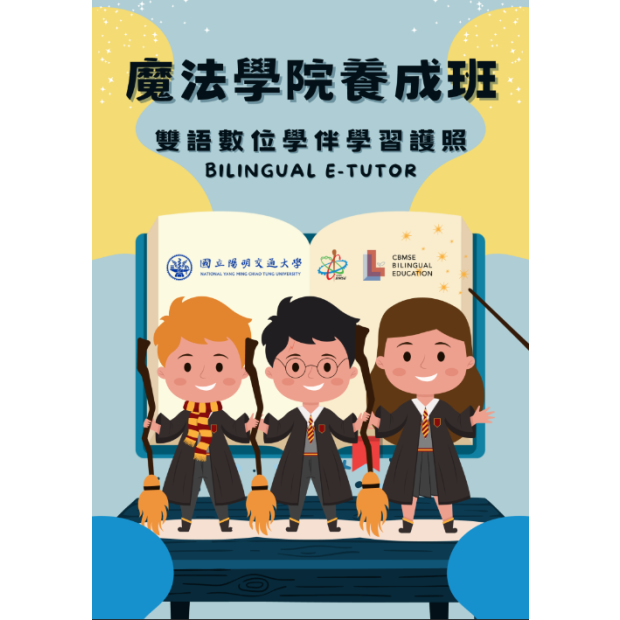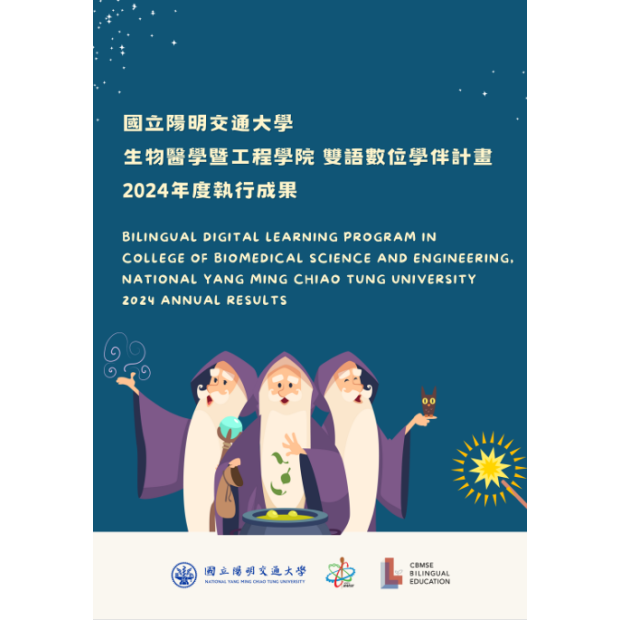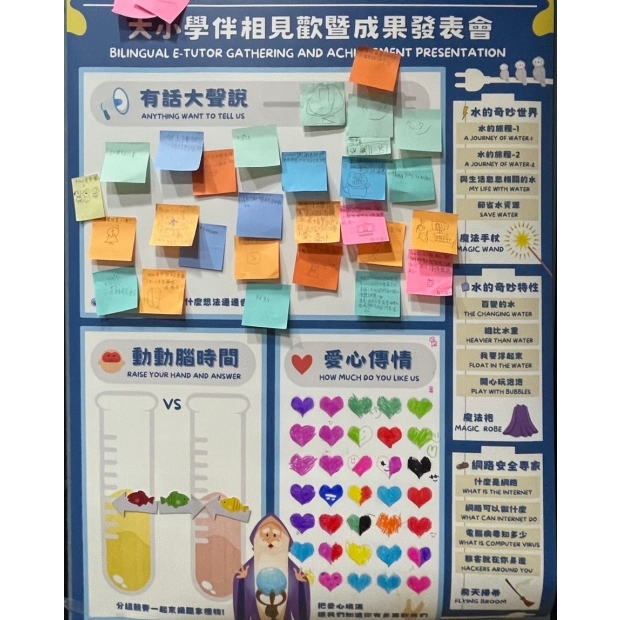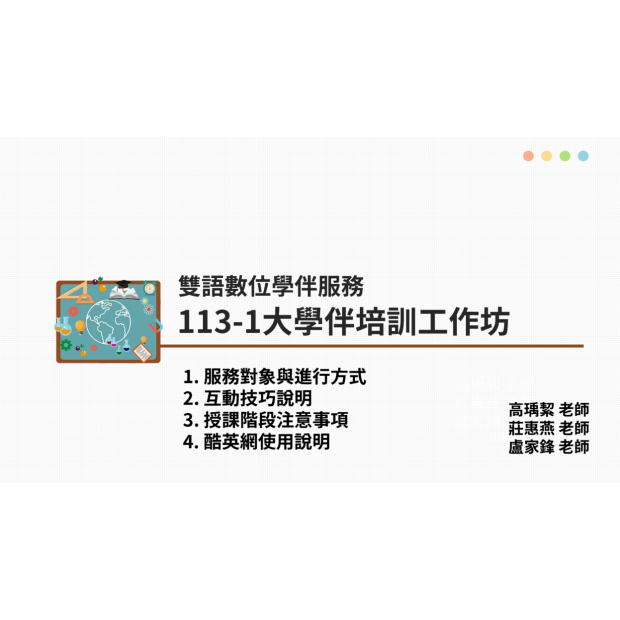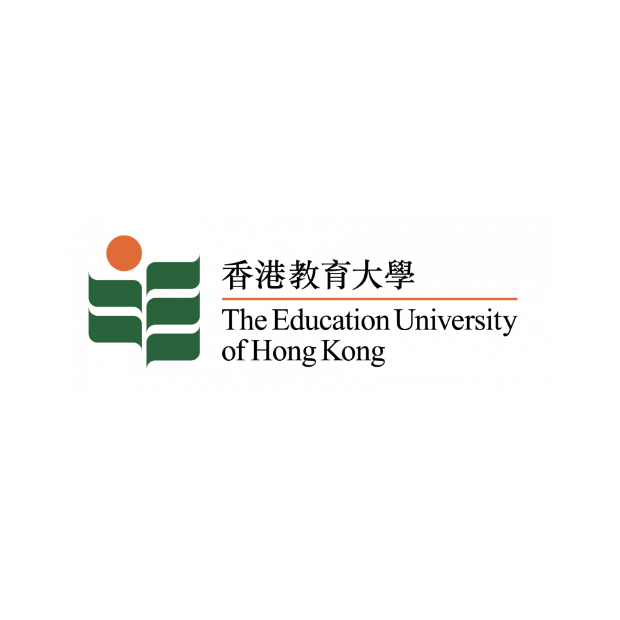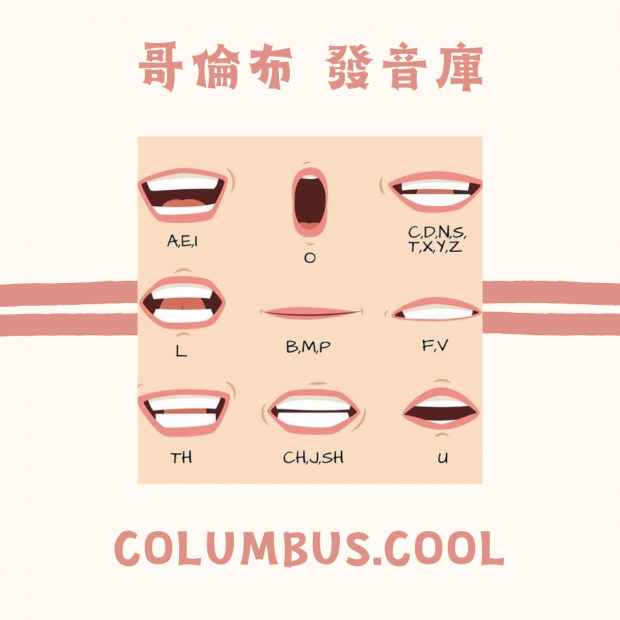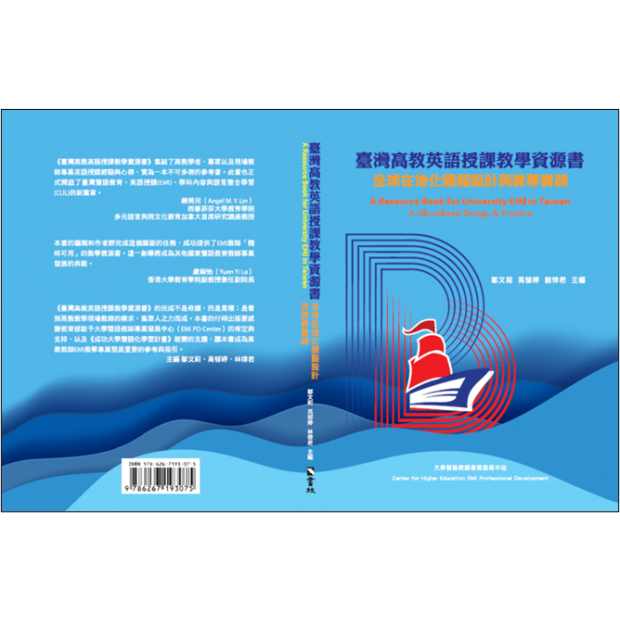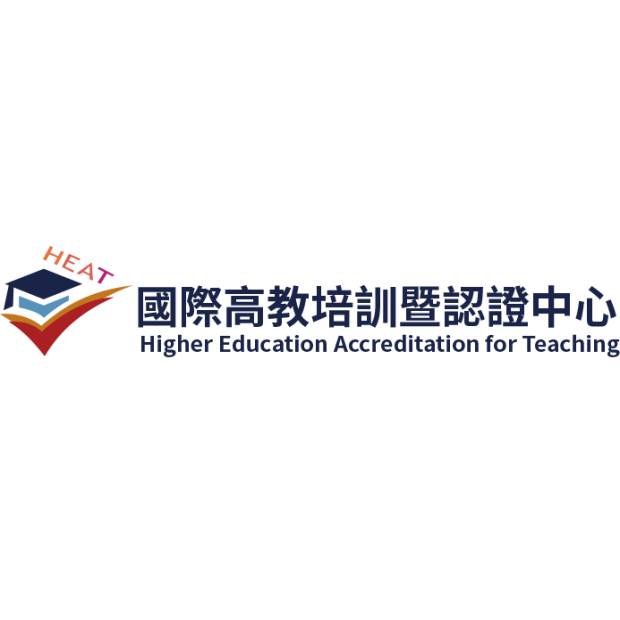全部學術單位
-
Read More
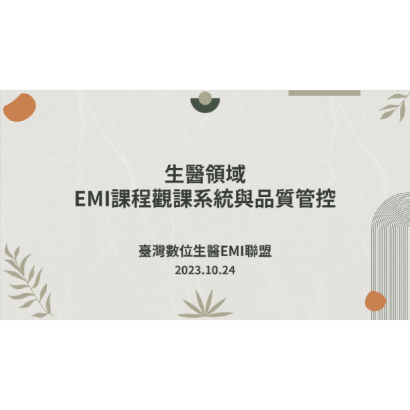 2023/10/24 臺灣數位生醫EMI聯盟共同線上工作坊 | Taiwan Digital Bio-medicine EMI League
2023/10/24 臺灣數位生醫EMI聯盟共同線上工作坊 | Taiwan Digital Bio-medicine EMI League2023/10/24 臺灣數位生醫EMI聯盟共同線上工作坊 | Taiwan Digital Bio-medicine EMI League
生醫領域 EMI課程觀課系統與品質管控
Observation System and Quality Control for EMI Courses. -
Read More
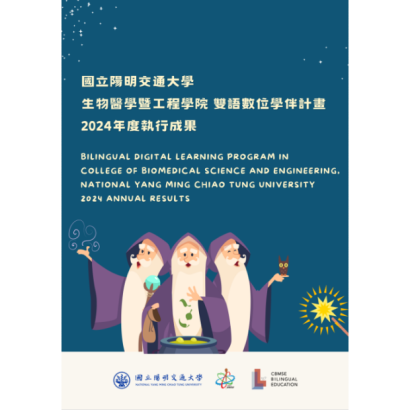 【電子書】雙語數位學伴計畫 2024 年度執行成果
【電子書】雙語數位學伴計畫 2024 年度執行成果【電子書】雙語數位學伴計畫 2024 年度執行成果
【電子書連結】生物醫學暨工程學院 雙語數位學伴計畫:2024年度執行成果
線上閱讀雙語數位學伴計畫:2024年度執行成果 -
Read More
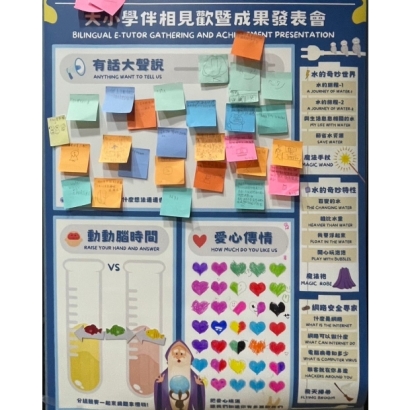 112-2實體相見歡暨成果發表會
112-2實體相見歡暨成果發表會112-2實體相見歡暨成果發表會
112-2實體相見歡暨成果發表會
活動於各校線上課程結束後舉行,促進大小學伴交流與提升學習效果。
由大學伴與指導老師統籌規劃,包括破冰活動與問答遊戲。
回顧過去十周的學習成果,展現課程成效。
國中小校方頒發小學伴結訓證書,增添參與儀式感。
小學伴分享課程心得與收穫,激發學習動機。
活動展現具體學習成果,期待促進更高的學習熱忱。
溪山實驗國民小學
冬山國民小學
柑園國民中學
雙園國民小學
育德國民小學
幸安國民小學
重陽國民小學 -
Read More
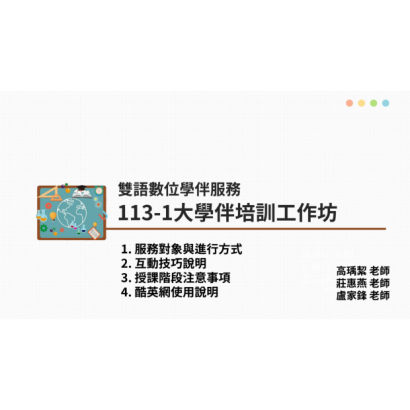 113-1大學伴培訓工作坊
113-1大學伴培訓工作坊113-1大學伴培訓工作坊
2024/08/27 113-1大學伴培訓工作坊
精心設計的培訓課程,讓大學伴充分了解小學伴的上課環境與設備使用情況
培訓內容能夠有效提升大學伴的教學素養與互動能力
大學伴透過實際演練與即時回饋,逐步熟悉課程流程,為後續教學做好充足準備
服務對象與進行方式
本計畫共有 40 位大學生擔任小學伴的學習夥伴,合作對象包含 7 所學校,共計 74 名國中小學童。教學方式採用線上授課,並結合「學習護照」,提供小學伴們個人化的學習輔助與指導。
合作學校:
重陽國民小學、育德國民小學、柑園國民中學、冬山國民小學、幸安國民小學、溪山實驗國民小學、雙園國民小學
互動技巧說明
課程設計著重於增加大小學伴使用英文的機會,通過營造彈性的雙語學習環境,激發國中小學童的數位與語言學習動機。
‧議題與英語學習並重
‧以互動取代純講課
‧階段式複習確認學習成效 -
Read More
 語言學習與寫作中心相關工作坊與英語諮詢 Workshops and English Consultation
語言學習與寫作中心相關工作坊與英語諮詢 Workshops and English Consultation語言學習與寫作中心相關工作坊與英語諮詢 Workshops and English Consultation
參訪語言學習與寫作中心
Language Learning and Writing Center -
Read More
 國家發展委員會雙語資源網 NDC Bilingual Learning Resource Website
國家發展委員會雙語資源網 NDC Bilingual Learning Resource Website國家發展委員會雙語資源網 NDC Bilingual Learning Resource Website
參訪國家發展委員會 雙語資源網
NDC Bilingual Learning Resource Website -
Read More
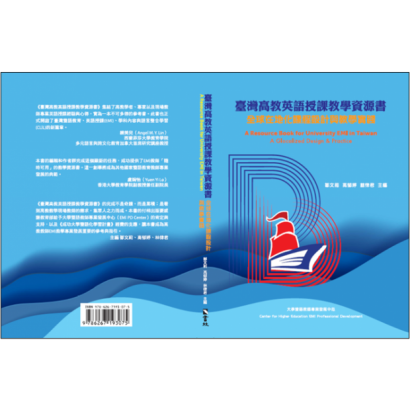 臺灣高教英語授課教學資源書-- 全球在地化課程設計與教學實踐 A Resource Book for University EMI in Taiwan: A Glocalized Design & Practice
臺灣高教英語授課教學資源書-- 全球在地化課程設計與教學實踐 A Resource Book for University EMI in Taiwan: A Glocalized Design & Practice臺灣高教英語授課教學資源書-- 全球在地化課程設計與教學實踐 A Resource Book for University EMI in Taiwan: A Glocalized Design & Practice
臺灣高教英語授課教學資源書-- 全球在地化課程設計與教學實踐
A Resource Book for University EMI in Taiwan: A Glocalized Design & Practice -
Read More
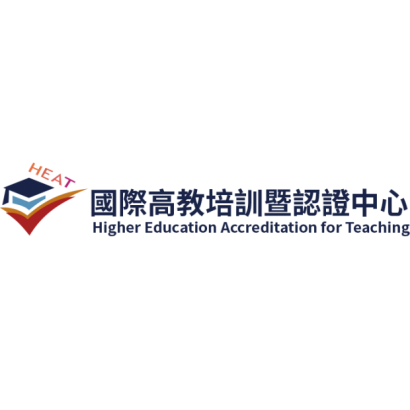 國際高教培訓暨認證中心 Higher Education Accreditation for Teaching
國際高教培訓暨認證中心 Higher Education Accreditation for Teaching國際高教培訓暨認證中心 Higher Education Accreditation for Teaching

